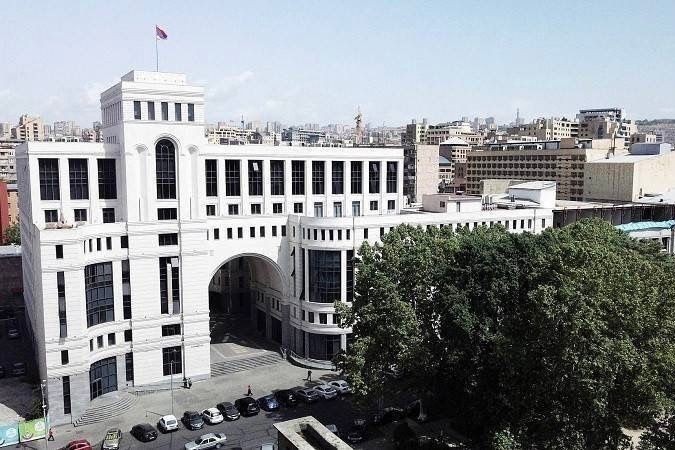
The Armenian Foreign Ministry has stated that Armenia officially informed the Collective Security Treaty Organisation (CSTO) Secretariat that it ‘will refrain from signing’ the CSTO’s resolution on the 2024 budget, and ‘from participating in the financing of the organisation's activities envisaged by it’.
The statement was published on Monday by Sputnik Armenia.
The ministry’s answer came in response to their inquiry, asking if Armenia planned to pay annual membership fees to the CSTO budget.
Earlier in March, Russian Deputy Foreign Minister Alexander Pankin told the Russian state-run media outlet RIA Novosti that if Armenia does not pay its contribution to the CSTO by the end of 2025, ‘nobody will probably kick anyone out, nobody will leave automatically’.
He added, however, that ‘probably, it will be possible to consider the issue of modalities of further interaction between the countries’.
Pankin also said that such a situation might ‘arise’ by 1 January 2026, the date marking two years since Armenia halted its payments.

Armenia first announced that Yerevan would not sign the CSTO’s 2024 budget, effectively cutting its financial contributions to the security bloc, in early May 2024. The decision was criticised by Moscow.
This development came after Armenia’s relations with both Russia and the CSTO began to deteriorate, following the failure of the two to send assistance during Azerbaijani incursions into Armenia in 2021 and 2022.
After sitting out CSTO events for months and pulling out from hosting a CSTO drill, in February 2024, Armenia announced that its participation in the CSTO was ‘basically frozen’.
Moreover, at the end of 2024, Armenian Prime Minister Nikol Pashinyan announced that ‘we have crossed the point of no return,’ regarding the country’s possible return to the bloc.
Meanwhile, despite the effective non-participation from Armenia, there have been occasional statements coming from Russia and the CSTO itself, reminding Armenia that it is a member of the bloc.
Russian officials have also dismissed Armenia’s criticism of the CSTO, calling it ‘unfounded’, and have additionally accused ‘Westerners’ of ‘push[ing]’ the Armenian authorities to freeze their participation.
The Russian side has repeatedly stated that there were ‘no comparable real alternatives’ to ties with Russia and the CSTO for ensuring Armenia’s security.
On 20 March, amidst Azerbaijani accusations of ceasefire violations all denied by Armenia, Russian Foreign Ministry spokesperson Maria Zakharova gave a positive response to a question if ‘Russia’s commitments to ensure Armenia’s security under the CSTO and bilateral agreements remain valid in light of Yerevan freezing its CSTO membership?’
Zakharova, however, added that ‘Yerevan’s “freezing” of its membership in the CSTO does not contribute to strengthening Armenia's security’.











